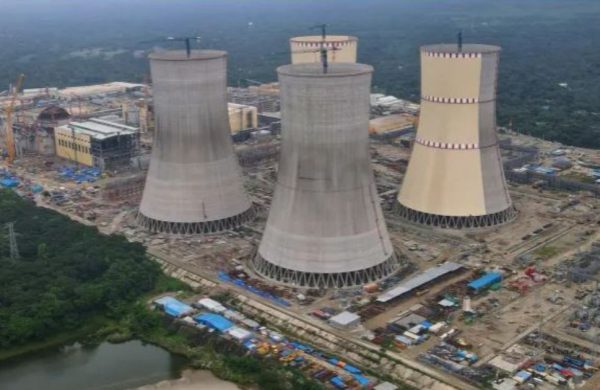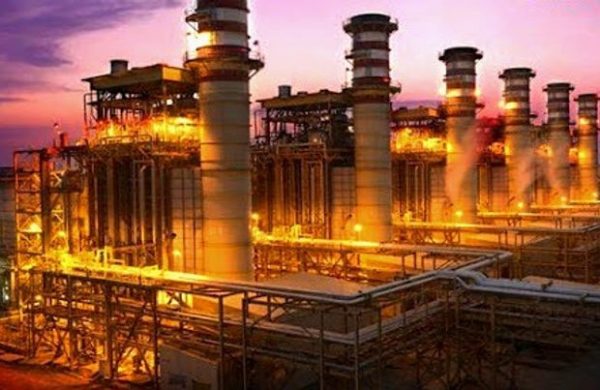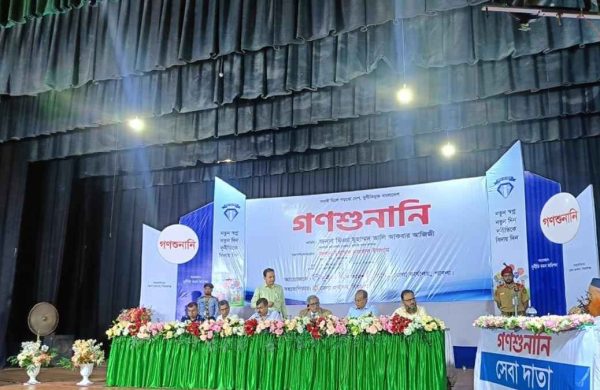Rooppur Nuclear Plant poised to reshape Bangladesh’s power landscape
- Update Time : Tuesday, July 29, 2025

Staff Correspondent:
The Rooppur Nuclear Power Plant is set to usher in a transformative era for Bangladesh’s energy strategy. Once fully operational, it will mark a new chapter in the country’s power generation – defined by enhanced self-reliance, improved efficiency, and reduced costs.
With this milestone, Bangladesh has already been recognised as the 33rd member of the global nuclear club, solidifying its entry into the nuclear energy domain.
Trial electricity generation began earlier this month. Built with Russian technology and funding, the plant’s first unit – capable of generating 1,200 megawatts – is expected to be commissioned later this year. Once fully operational, Rooppur will add 2,400 megawatts to the national grid, significantly boosting the country’s power generation capacity.
The Rooppur project is the largest single development initiative in Bangladesh’s history, with an estimated cost of Tk1.14 trillion. Of this, the government is contributing Tk220.52 billion, while the remaining Tk910.40 billion is being financed through Russian loans.
Construction began with groundwork on 2 October 2013, and full-scale development commenced in 2017. The project is being implemented by the Bangladesh Atomic Energy Commission under the Ministry of Science and Technology. Atomstroyexport, a subsidiary of Russia’s state-owned nuclear agency Rosatom, is serving as the lead contractor for the two 1,200-megawatt units.
Experts note that once Rooppur starts supplying electricity to the national grid, it will help reduce the country’s power shortage, enhance energy security, lower generation costs, and foster long-term strategic autonomy. The nuclear plant, Bangladesh’s first, also promises to lessen the country’s growing dependence on electricity imports from India.
Although allegations of irregularities and inflated costs have surfaced, stakeholders remain optimistic about Rooppur’s positive impact. The plant is expected to reshape cost dynamics by reducing the reliance on expensive oil-fired power plants, especially in northern Bangladesh, where production costs have historically been high.
Currently, Bangladesh imports 2,760 megawatts of electricity from India, accounting for about 17% of its total demand. The northern region, in particular, relies heavily on imports through agreements with India’s Adani Group and G2G deals. With Rooppur coming online, this dependence could drop by as much as 90%, as power from the plant will directly supply the region via the national grid.
According to the Bangladesh Power Development Board (BPDB), four high-capacity transmission lines connecting Rooppur to Bogura, Gopalganj, Kaliakoir, and Baghabari have been completed. BPDB has confirmed its readiness to receive electricity from the plant and intends to prioritise power supply to the northern region.
Dr Md Zahedul Hasan, managing director of Nuclear Power Plant Company Bangladesh Limited (NPCBL), the implementing agency, stated that fuel loading in the reactor is complete and low-power test runs are underway. “All necessary preparations are in their final stages,” he said, adding that full-capacity generation will begin following the successful completion of these tests.
Originally scheduled for completion between July 2016 and December 2025, the project timeline was extended to December 2027. Under contract terms, the extension does not permit an increase in project costs.
Delays were caused by several factors, including the COVID-19 pandemic, the Russia-Ukraine war, foreign currency shortages, and disruptions in international logistics and expert availability.
So far, six transmission lines have been constructed: Rooppur–Baghabari (65 km), Rooppur–Bogura (102 km), Rooppur–Gopalganj (144 km), Rooppur–Dhaka (147 km), Rooppur–Dhamrai (145 km), and Aminbazar–Kaliakoir (51 km).
Professor Dr. Monjurul Haque, dean of the faculty of Engineering and Technology at Islamic University, Kushtia, said the Rooppur project is likely to achieve several major milestones.
However, he cautioned that its long-term success depends on effective management and operations, as well as robust collaboration with global nuclear experts to ensure safe and efficient use of the technology.



















